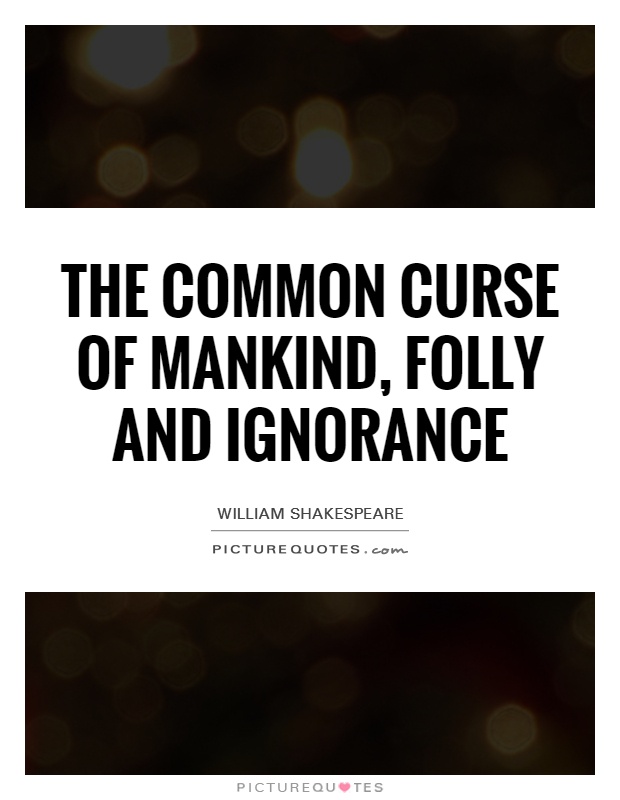The common curse of mankind, folly and ignorance

The common curse of mankind, folly and ignorance
In the works of William Shakespeare, the theme of folly and ignorance is a common curse that plagues mankind. Throughout his plays and sonnets, Shakespeare explores the consequences of human ignorance and the foolish decisions that people make. From the tragic downfall of characters like Macbeth and Othello to the comedic misunderstandings in plays like A Midsummer Night's Dream, Shakespeare highlights the destructive power of ignorance and folly.One of the most famous examples of folly and ignorance in Shakespeare's works is the character of King Lear. In the play "King Lear," the titular character's tragic downfall is a result of his own foolishness and ignorance. Lear's decision to divide his kingdom among his daughters based on their flattery leads to betrayal and ultimately his own demise. Lear's inability to see the truth and his stubborn pride blind him to the consequences of his actions, leading to his tragic end.
Similarly, in "Romeo and Juliet," the young lovers' ignorance of the feud between their families leads to their untimely deaths. Romeo's impulsive decision to take his own life upon hearing of Juliet's supposed death is a result of his ignorance of the true circumstances. Juliet's decision to fake her own death in order to be with Romeo also highlights the consequences of ignorance and folly.












 Friendship Quotes
Friendship Quotes Love Quotes
Love Quotes Life Quotes
Life Quotes Funny Quotes
Funny Quotes Motivational Quotes
Motivational Quotes Inspirational Quotes
Inspirational Quotes